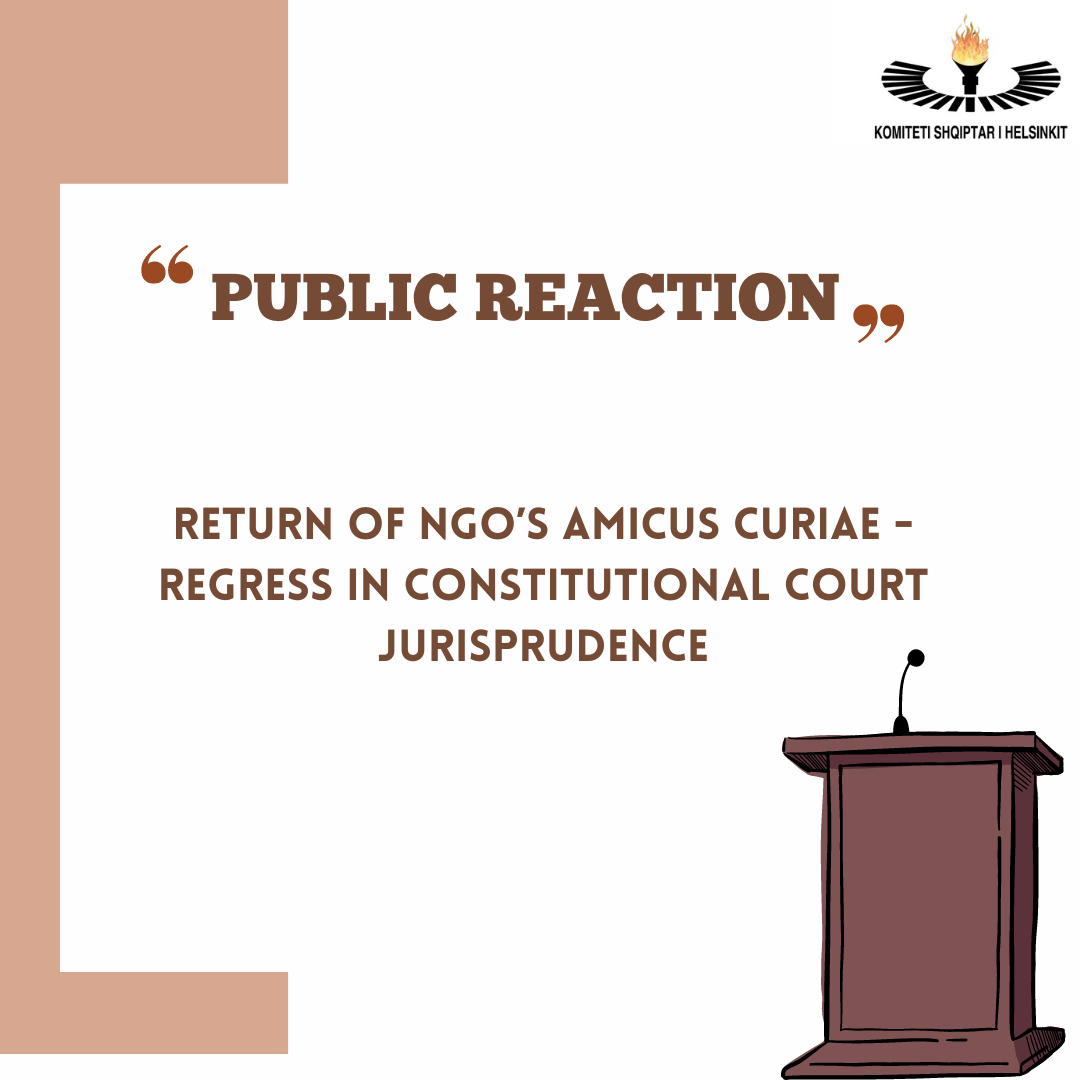The Albanian Helsinki Committee (AHC) together with 31 local, regional, and european organizations, submitted on 17.12.2023 to the Constitutional Court (CC), an amicus curiae in the interest of the constitutional review of the Protocol between the Government of the Republic of Italy and the Council of Ministers of the Republic of Albania (RA) “On strengthening cooperation in the field of migration.”
AHC became familiar with the letter dated 24.01.2024 from the Constitutional Court, according to which it is highlighted that the Court seeks ex officio opinions of this nature from the Strasbourg Court (ECtHR) on matters affecting the rights and freedoms envisaged in the ECHR, from the Venice Commission, or other bodies. Also, another form for obtaining an amicus curiae is through the request of parties in an adjudication. based on article 44/b of law no. 85577/2000 (amended) and article 35 of the CC Rules on judicial procedures, the amicus curiae submitted by non-profit organizations was sent back without action by this Court.
While appreciating the important constitutional mission of our Constitutional Court, AHC is of the opinion that the position taken toward the amicus curiae submitted by 31 NGOs is of a restrictive and limiting nature toward civil society organizations and represents regress vis-à-vis the standard elaborated in prior jurisdiction of this Court.
The position taken in this case by the CC does not contribute to the sustainable and progressive development of its decision-making practice, vis-à-vis independent and impartial non-government bodies, such as NPOs. Earlier, the CC’s positive practice reflected good will in taking into consideration facts and data presented by subjects, such as NPOs, which did not have the status of litigating parties, but were considered important and sufficient to initiate even ex officio the process of review of claims on the unconstitutionality of acts.
This practice was pursued even in the first years of democracy, when Civil Society Oragnizations did not have by legislation the right to set the Constitutional Court into motion and, therefore, the legislation of the time, unlike the current legislation, was effectively restrictive toward them. More concretely, in February 1997, AHC asked the CC to declare as incompatible with the Constitution some of the provisions in the Criminal Code and the Criminal Procedure Code, which envisaged fixed convictions. At the time, as a non-profit organization, AHC was not legitimized as a subject for setting the Court into motion; however, the CC argued that “appreciating the importance of the issues raised by AHC and envisaging the consequences that may come from the implementation of part of the amended criminal norms, the Court considers taking them into review upon its own initiative.”




